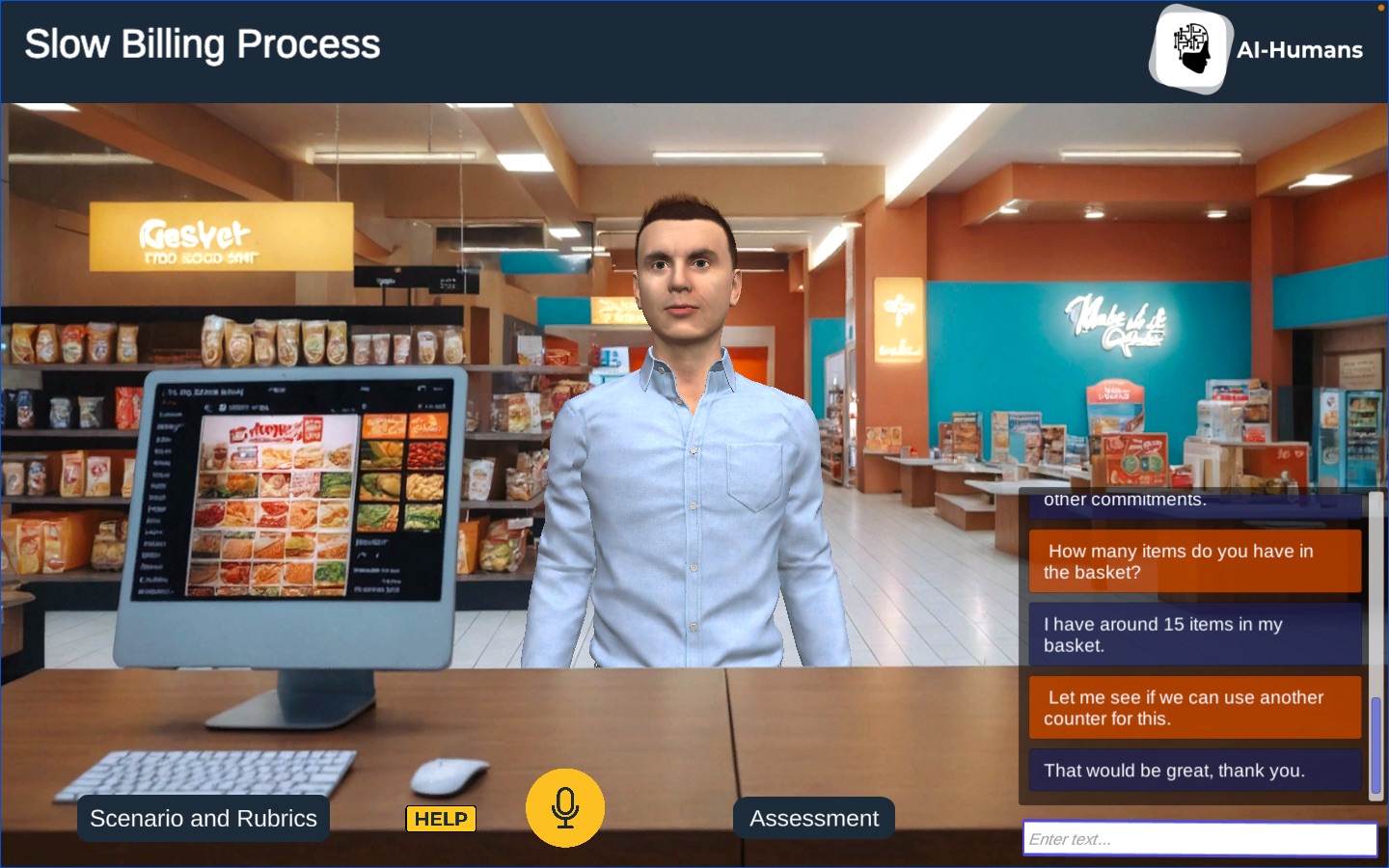Hands-on practice, experiential techniques and engaging learning opportunities – these are integral to an immersive learning experience. Since time immemorial, these methods have been the tried and tested ways of imparting effective learning. Over the years, this practice has been seen in forms of apprenticeships, role plays, learning in realistic simulated environments, and through day-to-day real-world activities. It has been universally tested and accepted that learning-by-doing is how we learn best.
Times have changed and new technology has emerged but that has not changed the fact that immersive experiential learning is still the best way to learn. Be it any field, any skill, performing a task cements the learning. In fact, with evolving technology the degree to which immersion can be provided has also increased. Virtual reality (VR), augmented reality (AR), and mixed reality (MR) have added a new dimension to learning and training, taking it into the virtual world. This marked shift from traditional training methods is opening up new possibilities in the learning and development domain. The addition of artificial intelligence (AI) has raised the bar a lot higher, making learning more effective, engaging and immersive.
Benefits of immersive learning
Immersive learning is a powerful tool that is used to provide learners with realistic and experiential learning opportunities in safe and controlled environments. To list down the benefits of this method of learning, we can say the following about it.
Highly engaging – When working in realistic surroundings, practicing real-world tasks, the learners find themselves engaged. No distractions mean higher engagement, which in turn means better learning.
Higher retention rate – When learning is engaging and effective, understanding of concepts are clearer. Better understanding means a higher retention rate.
Controlled practice environment – Simulations provide zero-risk practice zones for learners to practice their skills. This is particularly useful for skills related to healthcare, aviation, defense and other high-risk jobs.
Learner-centric – Immersive learning content is created keeping the learner’s requirements in mind. The learning journey adapts to the needs to the learner placing the learners in the driver’s seat.
Immediate feedback – Simulations provide immediate feedback to all actions – positive and negative. This helps the user analyze and understand their own performance and modify their actions in subsequent sessions.
Conversational AI enhancing immersive experiences
If the shift from traditional methods was not enough, the integration of AI into immersive content has contributed to a revolutionary change in learning experiences. A significant role is being played by conversational AI in this field.
Conversational AI refers to a ground-breaking technology that allows machines to understand human language and respond naturally. Virtual assistants, chatbots and AI-powered virtual humans are examples of where machines interact with humans fluently, creating an engaging and effective learning environment in multiple ways.
Interactive assistants – AI-powered characters can act as tutors and guides and assist learners along their learning journey. Users are provided help in understanding complex theories and concepts, helping them enhance their learning capabilities.
Adaptive learning – Learner performances and interactions can be analyzed using conversational AI. This helps deliver feedback tailor-made for each participant. Content is accordingly adapted to suit the learner’s difficulty level to make sure the learner stays motivated to learn further.
Engaging simulations – Integrating AI-powered characters into simulated environments raises the immersion quotient of the session. In a healthcare setup if an AI-powered character can respond to questions and engage in a conversation with learners it helps create an authentic experience for the users. Training sessions become more engaging and realistic.
Learning life skills – A significant area in which conversational AI can generate a powerful training environment is the practice of soft skills, or shall we call them life skills. AI-powered characters are a storehouse of information and powered with this they are able to engage in conversations with humans as they would in real-life. These conversations are purely organic and smooth, providing a real-world experience to the user.

AI-powered virtual characters helping develop life skills
Among virtual assistants, chatbots and AI-powered virtual humans, AI-powered virtual characters are proving to be highly effective in helping develop, practice and refine valuable life skills. A platform like AI-Humans is helping create scenarios to develop a skills applicable to various industries that users can use to practice and perfect their skills. Some significant skills include:
Communication – A piece of communication can either make or break a deal. To ensure that the correct message goes across to the receiver, it is very important to communicate it effectively. This can be accomplished through consistent practice. When practiced with an interactive AI-powered character, the experience is realistic and effective.
Negotiation – Negotiation skills help handle many difficult situations. These could be related to jobs in banking, retail, real estate, insurance, hospitality and many more. These skills can be developed by practicing in varied scenarios. AI-powered virtual characters prove to be perfect assistants for this purpose.
Patience – The power of patience cannot be emphasized enough. One impatient outburst can lead to a domino effect. Patience can be developed through practice. Helping an impatient guest with misplaced luggage requires the hotel executive to maintain his composure and assist the guest. If not, guest relations are sure to go downhill.
Persuasion – Almost every profession requires the skill of persuasion. It could be for persuading colleagues or customers, as the need be. How do you convince a customer to purchase a store loyalty program? Obviously through persuasion techniques.
Professionalism – No matter what the situation, professionalism must be maintained at all costs in all professions. AI-powered virtual characters responding like real humans can help practice this skill for a range of professions and a variety of scenarios.
Conversational AI in partnership with immersive learning presents a promising future for learning and development. Learners find themselves in realistic environments interacting with human-like characters that can respond on an equal, if not better, level and the experience is highly enriching and powerful. Characters like those we encounter on AI-Humans are a valuable tool to help develop, practice and refine a range of skills. With immediate feedback and performance analysis, the training sessions becomes vastly effective and relevant to professional requirements.
AI-Humans from ELDC is a SaaS-based platform that enables trainers to develop AI-powered durable skills training solutions within minutes. While all technical aspects of creating these AI-powered scenarios have been taken care of by the team, trainers can devote all their attention towards giving shape to highly effective and relevant training and provide learners with engaging and immersive training opportunities. Practicing durable skills is the best way to learn and this is precisely what AI-Humans is providing.

